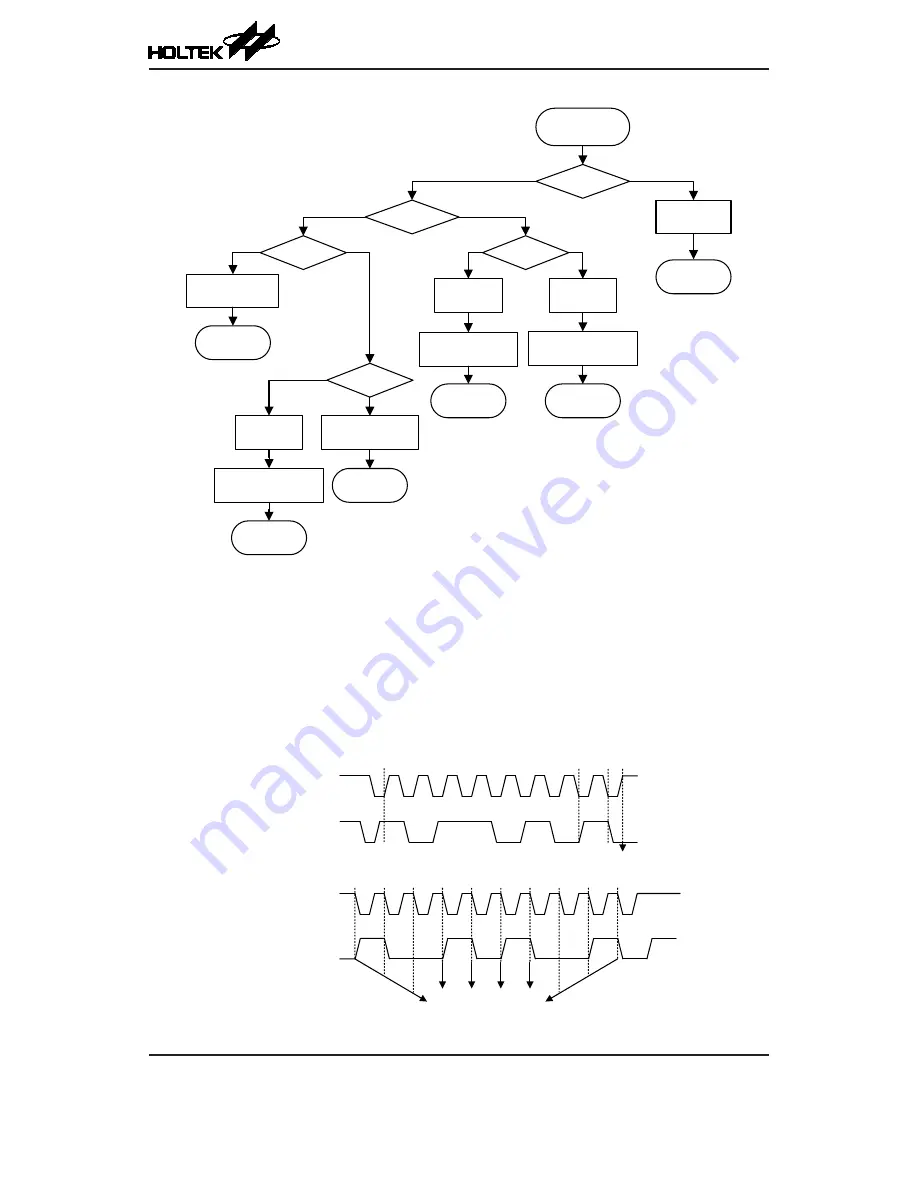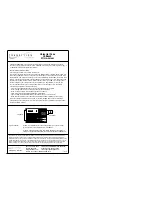
Rev. 1.10
158
October 23, 2020
Rev. 1.10
159
October 23, 2020
BC66F5652
2.4GHz RF Transceiver A/D Flash MCU
BC66F5652
2.4GHz RF Transceiver A/D Flash MCU
Start
SIMTOF=1?
SET SIMTOEN
CLR SIMTOF
RETI
HAAS=1?
HTX=1?
SRW=1?
Read from SIMD to
release SCL Line
RETI
RXAK=1?
Write data to SIMD to
release SCL Line
CLR HTX
CLR TXAK
Dummy read from SIMD
to release SCL Line
RETI
RETI
SET HTX
Write data to SIMD to
release SCL Line
RETI
CLR HTX
CLR TXAK
Dummy read from SIMD
to release SCL Line
RETI
Yes
No
No
Yes
Yes
No
Yes
No
No
Yes
I
2
C Bus ISR Flow Chart
I
2
C Time-out Control
In order to reduce the I
2
C lockup problem due to reception of erroneous clock sources, a time-out
function is provided. If the clock source connected to the I
2
C bus is not received for a while, then the
I
2
C circuitry and registers will be reset after a certain time-out period. The time-out counter starts
to count on an I
2
C bus “START” & “address match”
condition, and is cleared by an SCL falling
edge. Before the next SCL falling edge arrives, if the time elapsed is greater than the time-out period
specified by the SIMTOC register, then a time-out condition will occur. The time-out function will
stop when an I
2
C “STOP” condition occurs.
Start
SCL
SDA
SCL
SDA
1
0
ACK
Slave Address
SRW
Stop
1
1
0
1
0
1
0
1
0
0
1
0
1
0
0
I
2
C time-out
counter start
I
2
C time-out counter reset
on SCL negative transition
I
2
C Time-out
















































